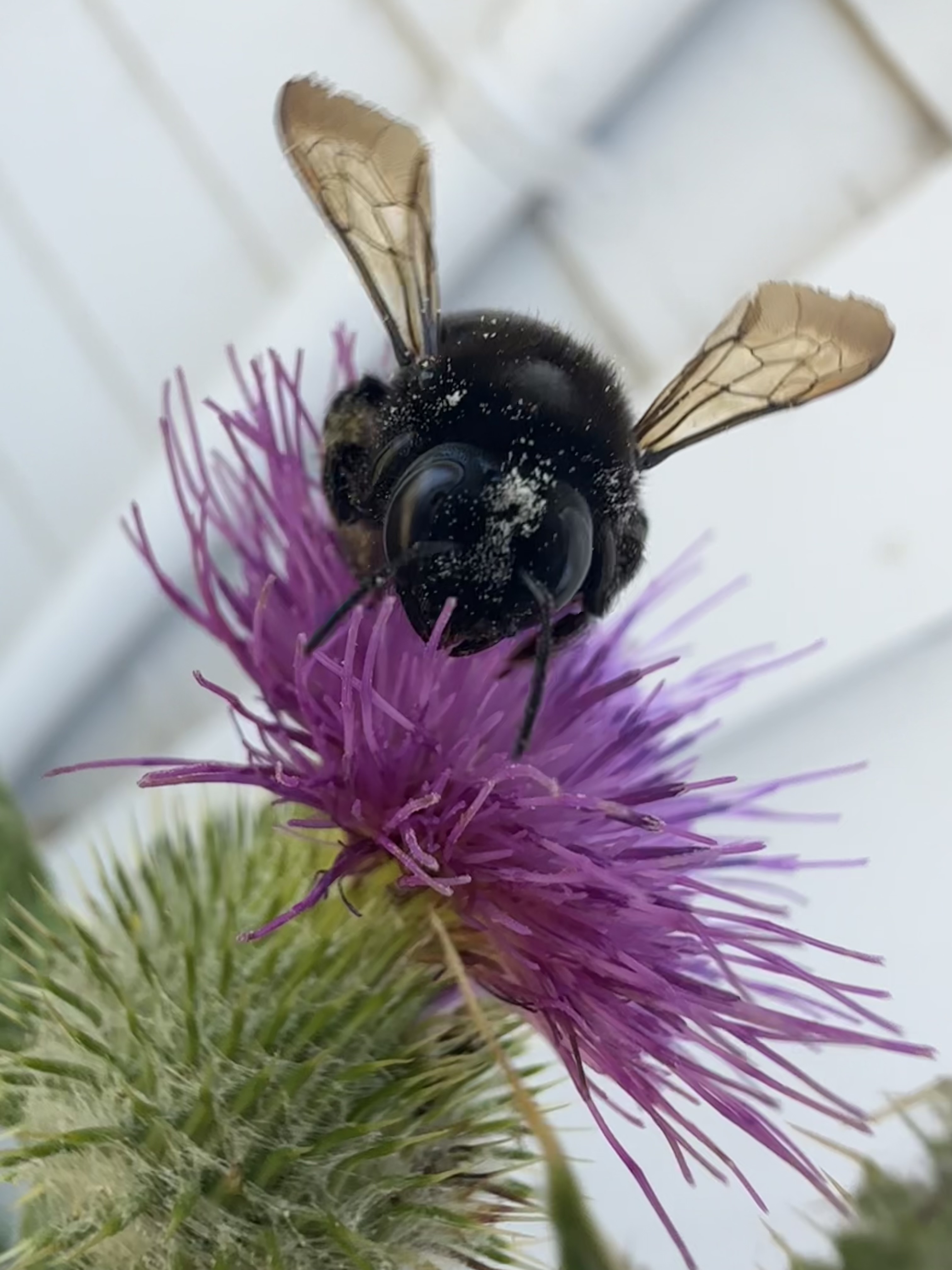From my understanding: I get that for honeybees, they need the nectar to make honey (their energy food source) and the pollen is an additional, essential food source for them which contains protein. They collect both nectar and pollen from flowers. For other pollinators like wasps, they don’t make honey but they still need to eat nectar and pollen which they collect from flowers. Though these pollinators benefit (survive/thrive) by collecting nectar and pollen from flowers, they also help plants to reproduce by carrying pollen between them and depositing it.
But why do they transfer pollen to other flowering plants? Of course this allows certain plants to reproduce, but that doesn’t explain why these pollinators care about helping plants reproduce. Are they little plant farmers who actually realise that transferring pollen and therefore making more plants, would benefit them? That would seem to demonstrate pretty high-level intelligence and foresight, planning wouldn’t it? Or is it just incidental that they’re going between flowers collecting nectar and pollen and happen to drop some pollen from previous flowers along the way?
I really struggled to find any information on the “WHY” of what bees are doing, from their own psychology point of view.
Bees are messy. When they go to the flower, it gets all over them.
The flowers are designed such that the pollen does this…. Because the flowers that do spread better. The bees are just there to get food, but while they’re going about getting food, they’re making an awful mess, and the flowers benefit.

that’s a lovely photo! did you take it? I couldn’t find anything on a reverse image search…
Thank you! I did! It’s here in the Awwnverts community: https://lemmy.world/post/2928386 And here she is from another angle in the Beebutts community: https://lemmy.world/post/2929223
I’ve been carefully deadheading that bull thistle that grew in my yard this year because I don’t want only bull thistle in my yard next year, but the bumble bees just freak out over it, so I don’t have the heart to get rid of it while it’s in bloom. It’s about six feet high and very thorny.
Disclaimer: I am not an expert.
With that said, I believe it’s mostly an accidental transfer as the pollen is basically a dust that easily carries on flying bugs legs.
If I’m wrong and experts know a more scientific answer, feel free to downvote me into oblivion.
Am not an expert either and I agree with you : like he guessed it is incidental.
They aren’t farming, they’re foraging, and have evolved symbiotic relationships through evolution. The plants get a benefit by getting pollinated, the bees get a benefit by having more flowers to feed on.
Since they need pollen, bees who developed those little hairs are/were able to out-compete bees who didn’t have them. They’re able to carry a lot more pollen and incidentally transfer it, spreading it around, so the new bees are better pollinators. That helps plants produce a lot more flowers, so it’s truly a symbiotic relationship- one would not exist without the other. Since wasps are omnivores, the evolutionary pressure to specialize isn’t as strong.
IIrc, there are some wasps who have specialized relationships with certain plants and flowers too, driven by evolution- the flowers depend on the wasps, and the wasps depend on the flowers.
This is funny, and really speaks to a fundamental issue we have during education as to assigning agency for what amount to"random" events.
OP is presumably educated and intelligent, and the takeaway they had was that bees “are pollinators” which is true with regard to our interest in them, but definitely implies agency that they are intentionally pollinating, which (I am pretty sure) isn’t true.
It feels like the same question that gets asked in a million different ways of “why did XYZ evolve that way when ABCD?” (Because evolution is random and tends toward selecting for energy conservation. Not to “achieve” some specific goal.)



